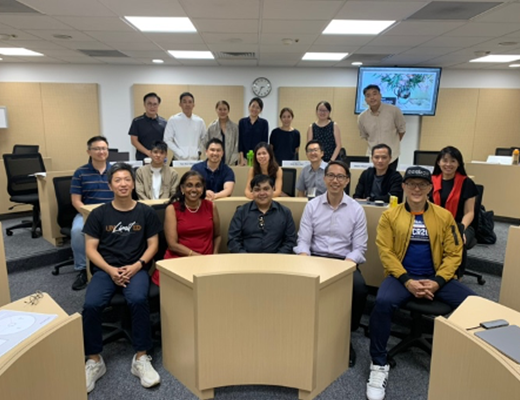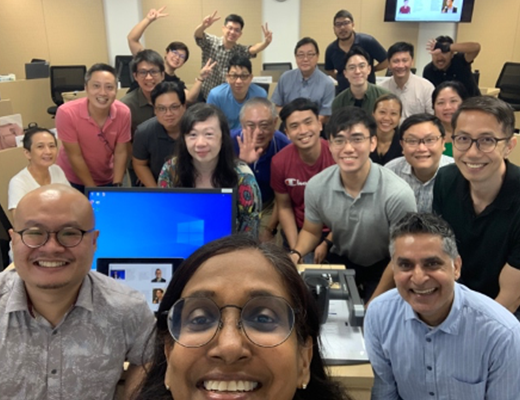Laina Raveendran Greene, Founder & CEO @ Angels of Impact
The advent of new digital tools, such as artificial intelligence, has brought about a profound transformation across various facets of our world, revolutionizing automation, personalization, customer experiences, language translation, financial services, and even agriculture. Integrating the right AI tools has become imperative for any entrepreneur to succeed.
The pace at which these changes occur is nothing short of exhilarating. Drawing from over 30 years of experience in the tech industry, I’ve witnessed firsthand how, in the past, innovations showcased at trade shows typically took around 15 to 30 years to transition into mainstream adoption. Consider the Internet revolution; it originated in 1971 with the inception of the first email sent across mainframe computers. However, it wasn’t until the development of tools like the World Wide Web in the 1990s that it began to gain user-friendly accessibility for the masses. Even in the ‘90s, the creation of web pages was confined to larger companies capable of bearing the costs of domain names, storage, bandwidth, and professional web developers. Since then, in a short period, website creation has become remarkably simplified, often free, requiring minimal to no technical skills, and today, at an even shorter span, AI tools can even create websites in seconds.
We need more than hard skills
Amidst the constant buzz around technology, there’s a prevalent tendency to perceive it as an ultimate destination rather than a means to achieve specific objectives. Consequently, an excessive emphasis exists on fostering hard digital skills, such as coding, often neglecting the equally essential soft skills. Take web page development, for example; it’s not solely about mastering the technical aspects but hinges on nuanced elements like user interface design, graphics, comprehension of user engagement psychology, alignment with the website’s purpose, and the ability to foster a sense of community. These facets constitute soft skills that are indispensable for the success of a webpage.
This principle holds universally for most digital tools, including routine corporate utilities. Many instances highlight companies’ struggles in effectively deploying digital tools due to overemphasizing their flashy features, while insufficient attention is given to offline support mechanisms or a comprehensive understanding of the behavioral change dynamics necessary for their implementation.
This reality extends to AI tools as well. ChatGPT’s effectiveness, for example, relies on both the quality of the prompts it receives and the user’s capacity to capitalize on the data offered to them, for example, the ability to differentiate between information and fabrications—a domain where the tool has exhibited occasional shortcomings. Instances abound where ChatGPT has produced counterfeit book quotes, displayed lapses in common sense, or demonstrated biased deductions, recognizable primarily by astute users. As AI increasingly integrates seamlessly into applications without explicit user consent, such as facial recognition for crime prevention, there also arises a need for empathy, good data analytic skills to remove bias, advocacy, policy development, regulatory understanding, and communication to create awareness. These skills are essential to safeguard against AI’s potential detrimental use within society at large. Likewise, the success of AI tools will depend on their applicability within relevant laws such as copyright laws and the use of online digital content—as this could threaten the tool’s successful implementation. Already, we see many corporations disallowing their employees from using ChatGPT and calling for increased regulation over AI.
Essentially, I view this new digital revolution through the lens of continuity. As before, it’s not solely about the technology itself but about how it seamlessly integrates with our lives, how well it serves as a facilitator rather than an endpoint, and how adeptly it amplifies our innate human abilities. Soft skills remain indispensable for sustainable success in the digital age.
What are soft skills?
Soft skills encompass diverse capabilities, including communication, critical thinking, creativity, adaptability, and emotional intelligence. Many companies prioritize hiring for Emotional Intelligence (EI) over technical skills in the contemporary job market. This emphasis stems from recognizing the pivotal role that interpersonal abilities play in fostering a positive work environment, nurturing effective teamwork, elevating customer experiences, and fueling innovation. Notable companies prioritizing EI in their hiring practices include Google, Zappos, Southwest Airlines, Apple, Salesforce, IBM, and IDEO. These companies acknowledge the evolving diversity within their workforce and customer base, the complexities of virtual work environments shaped by remote work and global time zones, and more. Hence, soft skills emerge as genuine hard skills essential for achieving success in today’s dynamic professional landscape despite the rampant digital tools that exist.
Lean start-up Methodology
Despite this increasing awareness of the importance of soft skills, I consistently witness technopreneurs persistently prioritizing technology as the ultimate panacea. As an investor in entrepreneurs globally and an instructor of entrepreneurship at the National University of Singapore Business School (formerly also at Stanford University), this recurrent inclination is a pattern I frequently encounter. Hence, I’ve adopted the Lean Startup methodology in my classes—originally formulated by Eric Ries and Steve Blank—to emphasize the significance of employing a soft-skill approach and offering a good methodology. The Lean Startup methodology revolves around systematic listening to customers, validated learning, iterative product development, and a build-measure-learn feedback loop. Its core objective is to minimize wastage and optimize resources.
Implementing this methodology requires various soft skills, such as attentive and empathetic listening, adept people management, and effective team collaboration. Despite equipping students with this methodology gleaned from scrutinizing numerous successes and failures of tech startups in Silicon Valley, many of my students continue to undervalue this approach. Instead, they often excessively rely on their technological innovations, erroneously assuming they are the sole catalyst for their success. Consequently, even after acquiring this methodology, they persist in pitching their technology solely, anticipating triumph without adequately considering broader business strategies and customer-centric approaches. So much more interesting to focus on the shiny object.
Repeatedly, this mindset has resulted in numerous tech startups failing, as they often offer solutions without a clear market demand rather than crafting solutions that perfectly align with a good product-market fit. Conversely, companies like Dropbox, Airbnb, Intuit, Toyota, and General Electric continue to thrive by consistently innovating and learning utilizing the Lean Startup methodology. Every now and then, reflecting on their experiences, I do have some entrepreneurs I have taught admit to overlooking the crucial aspect of addressing their customers’ needs as the cause of their failure. This realization underscores a vital lesson I aim to for my students and aspiring entrepreneurs to grasp, thereby helping them make less costly mistakes and increase their chances of success. The bottom line is that while technology holds immense value, its success relies on a delicate harmony between technological expertise and soft skills.
Technical + soft skills
The evolution and deployment of pivotal AI solutions will only mean that the harmony between technical proficiency and soft skills remains indispensable. Just as we will increasingly require AI technologists capable of making ethical decisions concerning data privacy, bias mitigation, transparency, and fairness in AI algorithms, innovative entrepreneurs will, even more than ever, need employees with as much soft skills as hard skills to leverage AI tools for business success. We are already seeing jobs such as administrative support, production line workers, retail customer service, telemarketing, entry-level legal work, and even routine healthcare tasks being replaced by AI tools. However, jobs such as human resources, counseling, healthcare and medical professionals, senior leadership, teaching, scientific research, comedians, or jobs requiring a human touch or mind will not be replaceable by AI anytime soon. It is not farfetched to conclude that soft skills will be equally, if not more important, than hard skills, despite this new digital revolution.
Laina Raveendran Greene has been a Senior Adjunct Lecturer at the National University of Singapore Business School since 2017 and is the founder and CEO of Angels of Impact, which has funded and offered capacity-building support for women entrepreneurs in Southeast Asia for over seven years. Before this, she was the Executive Director of Inti Bangun Sejahtera (IBS), an Indonesian cell phone tower company, and Board member of an American Stock Exchange company, Globetel Communications.
Before becoming an investor, she had a long history in entrepreneurship, having started, run, and sold over 10 years a B2B marketing company in Singapore (which later was sold to Hotwire). She also ran a tech consulting company out of Silicon Valley for almost 20 years. Laina’s journey in the technology sector began with her involvement in prominent institutions such as the International Telecommunication Union (ITU), the International Satellite Organisation (INTELSAT) and the Asia-Pacific Network Information Centre (APNIC). In her consulting practice, she did business development work for Cisco Systems, Juniper Networks, and was a Business Manager at Singapore Telecom. Laina holds a Master’s Degree from Harvard University, USA.






